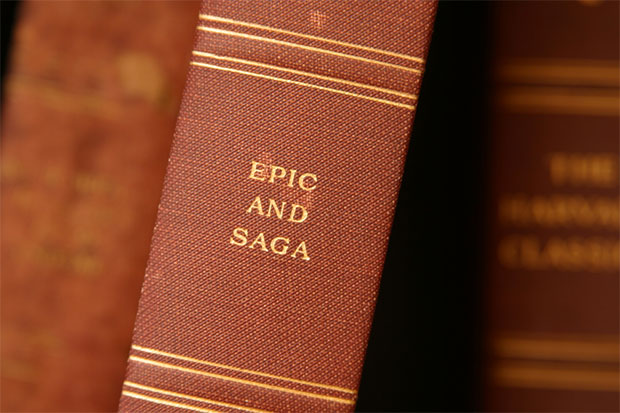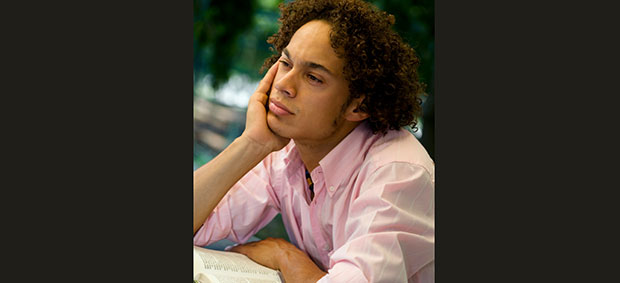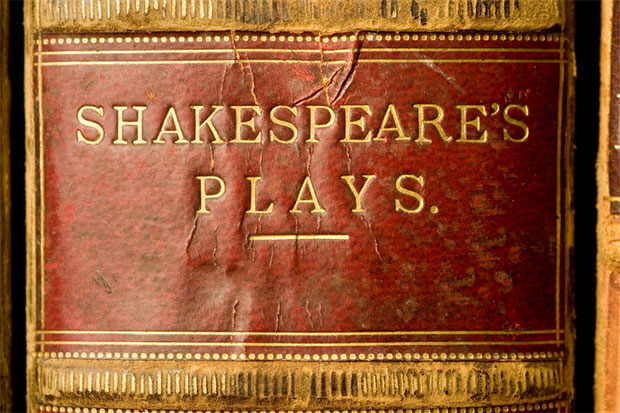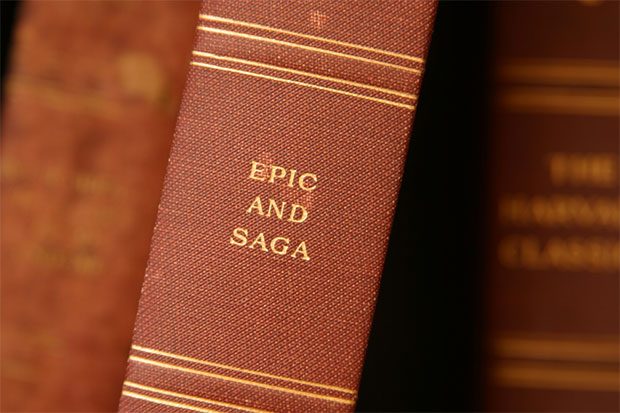
By Dr. Elizabeth Kantor
When we hear about the "culture war" we think of controversial political issues: abortion, homosexual marriage, sex education in the schools. But "culture" means more than hot-button political issues. In one sense, culture (sometimes called "higher culture") is made up of the kinds of things people go to college to study—especially in the liberal arts, which aren't immediately directed toward preparing students for paying jobs. Another meaning of culture (as when we talk about "Western culture") is the sum of the attitudes, habits, and beliefs that characterize a civilization. We can distinguish these different meanings, and yet they overlap one another.
It's because of that overlap—and in particular, because of the role that "higher culture" has traditionally played in sustaining "Western culture" in the larger sense—that the transformation of English departments in American universities over the past four decades has been a disaster.
Supplanting the Classic Literary Canon
Nearly universally until the 1960s, and up till the 1980s on most campuses, literature professors tended to share a commitment to preserving and transmitting the higher culture of Western civilization. Whether they were researchers into the facts of Wordsworth's life, textual critics trying to establish a definitive text for a Shakespeare play, or "New Critics" exploring John Donne's poetic imagery, most English professors accepted that the classic works in the old "canon" of literature in English were valuable for students to study closely and know well.
Then came the '60s counterculture, the advent of "deconstruction," and the fad for "literary theory" in English departments. The canon was challenged: Why, campus radicals asked, were so many works by "dead white males" being taught? Traditional criteria for the selection of literature were abandoned. Professors no longer chose literary works because they had long been recognized as great by educated opinion or because those works had superior claims to truth, goodness, or beauty. Race, class, and gender became the new categories according to which literature was both judged and understood.
The result was a dramatic change in what college students learned in their English classes. Increasingly,(1) English classes were devoted to material that is not classic literature in English. English professors now routinely teach Marxist ideology, Freudian analysis, deconstruction (√† la Derrida), and feminist theory.(2) Professors explain that they have quit teaching classic authors—including Hemingway and Conrad—because of their "misogyny" and "racism."(3) Instead, college students study material drawn from popular culture: Hollywood movies, "graphic novels," pornography, and The Da Vinci Code.(4)
Requirements (even for English majors) that students read the classics (even Shakespeare) have been watered down.(5) And when the works of the old canon are still taught, the difference between a traditional education in English literature and a postmodernist one may be even more pronounced. Until the middle of the twentieth century, American college professors valued Shakespeare for the achievements that critics had celebrated for centuries: The Bard wrote poetry of unparalleled beauty, and his plays are a source of universally valuable insights into human nature.(6) Today, professors blame Shakespeare for "gender roles that subordinate women" and write of Macbeth that "the domestication of women appears to be a major project of this play."(7) A Shakespeare class is no longer an initiation into the higher culture of Western civilization. It's a polemic against that civilization, mining Shakespeare's plays for examples of the racism, colonialism, misogyny, and homophobia that are supposed to characterize Western culture.

Does It Matter?
Does it matter that literary study is leaving students ignorant of the great works of literature in English, or actually teaching them to see Western culture as a source of oppression? How you answer this question depends on two things: first, what the purpose of literary education should be, and, second, whether Western culture is, on balance, a good thing or a bad one.
Literature has been part of education for as long as there's been any such thing as education. Over 2,300 years ago, Aristotle explained why:
Since virtue has to do with enjoying oneself in the right way, with liking and hating the right things, clearly there is no lesson more important to be learned or habit to be formed than that of right judgment and of delighting in good characters and noble actions.(8)
Sir Philip Sidney, writing during the Renaissance in England, enlarged on the classical case for the value of literature. Poetry, he argued, can "strike," "pierce," and "possess the sight of the soul" as the abstract arguments of the moral philosopher cannot—painting "the outward beauty" of virtue, spurring you on to aspire to what's noble and avoid what's base. Poets are "the first bringers in of all civility," he affirmed; and "no philosopher's precepts can sooner make you an honest man than the reading of Virgil."(9)
It's one thing to agree in the abstract that people should tell the truth and do their duty; it's quite another to see duty and integrity embodied in Aeneas' character and to want to be a straight-arrow kind of person like him. Literature speaks not just to the intellect, but not just to the appetites, either. It appeals to what C. S. Lewis, following Nietzsche, calls the "chest"—the spirited part of a man that's neither brains nor glands.(10) Literature touches your imagination, which can move your will and shape your character.
Western literature, naturally, tends to mold characters in the particular virtues typically admired in Western civilization. Human beings, after all, aren't civilized in the abstract, but into a particular civilization. The attitudes and beliefs that distinguish any given culture will shape that culture's literature (which, in its turn, will continue to form the culture). English and American literature is likely to cultivate in its readers the values of Anglo-American culture.
If Western civilization and Anglo-American culture are nothing but sources of oppression, then it's no loss (in fact, it's a great gain for human freedom) if the great works of English literature are abandoned for the works of other cultures, or of no culture at all. But if Western culture has, on balance, been a benefactor of the human race, then the abandonment of our great literature is a very great loss. Think about it: Americans didn't use to consider themselves educated unless they knew some of the great literature in English—Shakespeare, at least. Will the educated Americans of the future—not knowing Shakespeare, or else knowing him chiefly as a source of examples of everything that's wrong with Western civilization—share the culture that has made America what she is?

Western Culture
There's not space here for an exhaustive defense of Western culture. I'll just note in passing a few things, difficult to deny. The status of women in the Western world today is unique in world history. The abolition of slavery and the recognition of universal human rights owe quite a lot to Western civilization. And the culture of the Anglosphere continues to be a great engine for the spread of the rule of law and of economic progress (which we, in our abundance, may take for granted, but which enables millions of people in India, for example, to escape grinding poverty). The fact that America is a magnet for immigrants is evidence of the health and success of Western culture.
If college students were still studying great English literature with professors in sympathy with the culture in which that literature was written, they'd be encountering attitudes and ideas that have contributed to the remarkable success of Western civilization—and to its power for good in the world. The traditional education in the canon of great literary works wasn't an indoctrination into any fixed set of beliefs. After all, criticism (even rising to the level of thoroughgoing skepticism) is one of the habits most characteristic of Western culture. But an open-minded encounter with the great literature in English did introduce students to a number of valuable ideals and habits of mind—some of them characteristic of any healthy civilization, others unique to our particular culture—that they are unlikely to encounter in their English classes today.

Consider just a handful of examples. From Beowulf, from Shakespeare's Henry V, from Faulkner's works (his novels, and also his Nobel Prize acceptance speech), and from Evelyn Waugh's great World War II novel, Sword of Honour, students might come to understand that war is sometimes necessary, and that there is glory in the hero's courage and self-sacrifice. None of these works of literature celebrates warmongering or unthinking patriotism. In fact, all of them contain large elements of criticism of the human pride, folly, and rapacity that cause wars. But each of them is an invitation to learn to admire heroes and to aspire to military virtue—without which, after all, no civilization will long survive.
From Chaucer, students could learn chivalry, the peculiarly Western attitude toward women. In the Canterbury Tales we get a glimpse of how special courtesy toward women—which was originally part of a kind of literary fad for the leisured classes—was changing the understanding of marriage and even of how men should treat women, in general, in medieval Europe. If we prefer the freedom and dignity that women enjoy in modern Western society to their status in ancient and non-Western cultures, then we ought to be able to see the traditional Western understanding of "gender roles" that we find in Chaucer's works (and also in Shakespeare's comedies, and Jane Austen's novels) as a good model for college students, not a bad influence to be eradicated.
In the novels of Dickens, students would see embodied—in countless fascinating plot twists—the commitment to moral absolutes that's been a hallmark of Western culture since Socrates refuted the sophists. (Of course, that commitment has been almost continuously under attack ever since—for example, from the Benthamite philosophy Dickens lampooned in Hard Times; from the revolutionary expedience whose bloody record he shows us in A Tale of Two Cities; and recently from the postmodernist philosophy of the deconstructionists in our English departments.) A sympathetic reader of Dickens doesn't just know in the abstract that the end doesn't justify the means. Dickens makes us feel in our bones that it's pointless and self-defeating to do evil that good may come of it. Each act of revenge or selfishness—no matter what good reason the actor thinks he has for doing it—has its own internal logic. Whatever the end was that he intended to achieve, the actual character of what he did will determine the consequences of his act.
And this is only a small sample of the themes in only a few of the great works of English literature. Compared to what students are getting now—bloodstained and bankrupt Marxism and Freudianism, radical feminism and "queer theory," the "deconstruction" that amounts to an attempt to undo the Socratic revolution at the beginning of Western civilization—the lessons that they could be learning from the great literature in English are greatly to be preferred. Even on the great theme common to all the postmodernist schools of thought—the condemnation of the particular kind of injustice (racism, classism, homophobia, and so forth) that is perpetrated by one group on another—today's English professors have much less interesting things to say than Huckleberry Finn or Flannery O'Connor's "Everything That Rises Must Converge."
Righting the Wrong Course
What's to be done? The solution is simple. Give today's students the classic literature of our culture. Expose them to the beauty and truth of the great poetry in English, to the delightful wisdom of the great novels, and to the ideas of Milton, Dr. Johnson, Wordsworth, and T. S. Eliot—which are no less accessible, nor any less interesting and valuable, than the thoughts of Derrida and Foucault. Hire faculty whose expertise is in Shakespeare, not multiculturalism. Establish an English curriculum made up of great works of literature that have been approved by generations of educated opinion. And then entertain challenges to that curriculum only on the basis that different works contain superior beauty, truth, or goodness.
Bring back the classic literary canon.
- See “Losing the Big Picture: The Fragmentation of the English Major since 1964,” a National Association of Scholars study of the offerings of representative English departments, published in 2000 and showing that classic literature and authors were progressively crowded out of English curricula over the previous three decades; the study is available online at http://www.nas.org/reports/eng_maj/LosingTheBigPicture.pdf. Also of interest is a report on the state of college instruction in English composition published June 19,2006, by the John William Pope Center for Higher Education Policy: “English 101: Prologue to Literacy or Postmodern Moonshine?” by Nan Miller; this document can be viewed at http://www.johnlocke.org/acrobat/pope_articles/english101.pdf
- Elizabeth Kantor, The Politically Incorrect Guide to English and American Literature (Washington, D.C.: Regnery, 2006), pp.73, 190-194 and 198 and notes on pp.255-57.
- Lennard J. Davis, “The Value of Teaching from a Racist Classic (Heart of Darkness),” The Chronicle of Higher Education 52, no.37 (May 29, 2006), p. B10.
- Kantor, op.cit., pp.167, 190-91, and 198 and notes on pp.254-57.
- “The Vanishing Shakespeare,” a study by the American Council of Trustees and Alumni published April 2007 and available online at http://www.vanishingshakespeare.org/.
- See Mark van Doren, Shakespeare (New York: New York Review of Books Classics, 2005) for representative Shakespeare criticism by a mid-twentieth-century American professor of English.
- Kantor, op. cit., pp.67 and 73, quoting from Phyllis Rackin, Shakespeare and Women (Oxford and New York: Oxford Univerity Press, 2005), p. 130 and from Robert Lublin, “Feminist History, Theory, and Practice in the Shakespeare Classroom,” Theater Topics 14, no. 2 (September 2004), p. 401.
- Aristotle, Politics VIII, 5.
- Sir Philip Sidney, Defense of Poesy.
- C. S. Lewis, The Abolition of Man (New York: Harper Collins, 1974), pp. 1-26.
——–
Dr. Elizabeth Kantor received her M.A. in philosophy from Catholic University and her Ph.D. in English from the University of North Carolina at Chapel Hill. She is the editor of the conservative Book Club and author of The Politically Incorrect Guide to English and American Literature.

